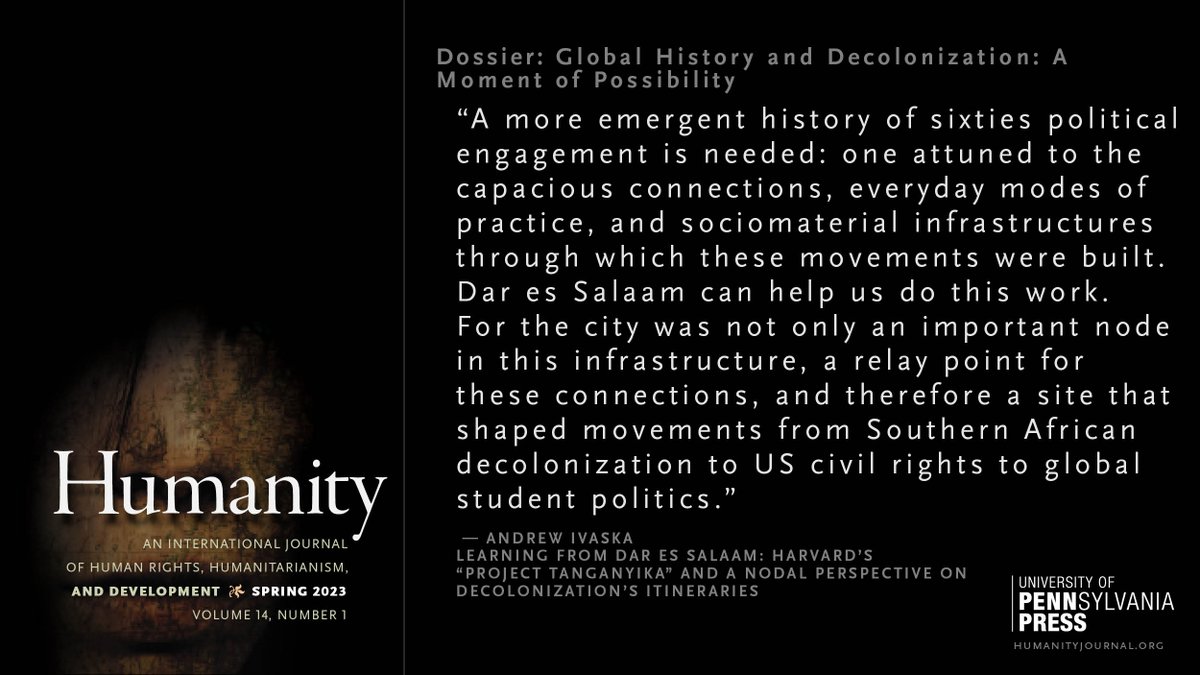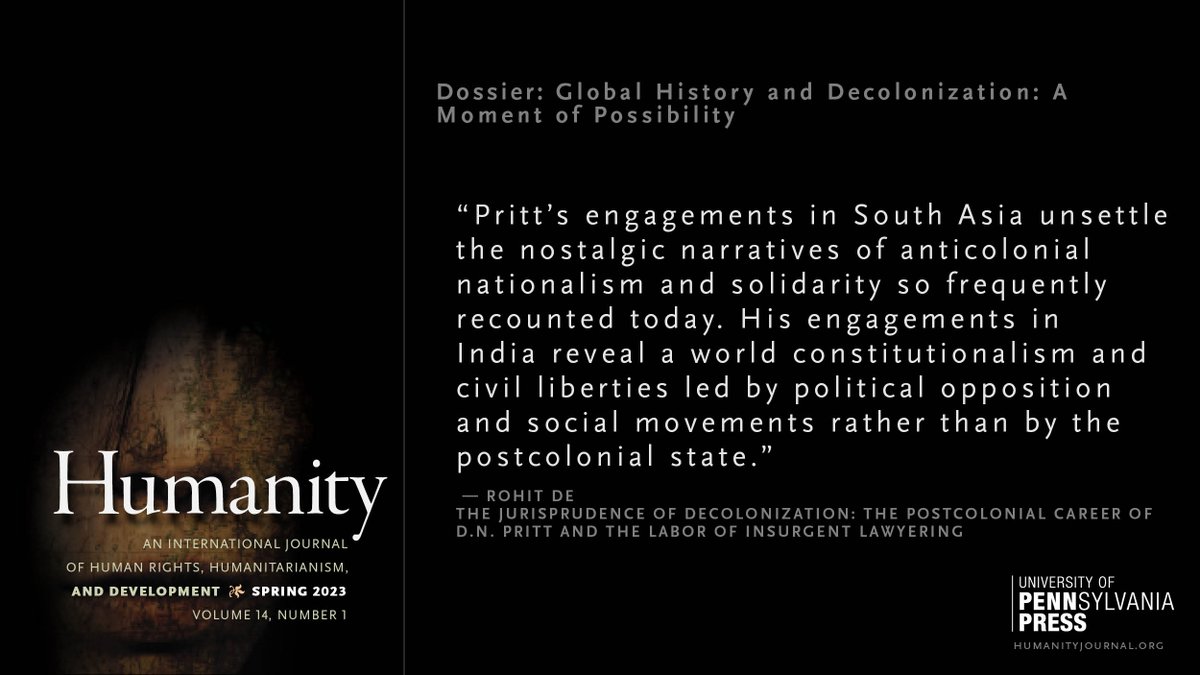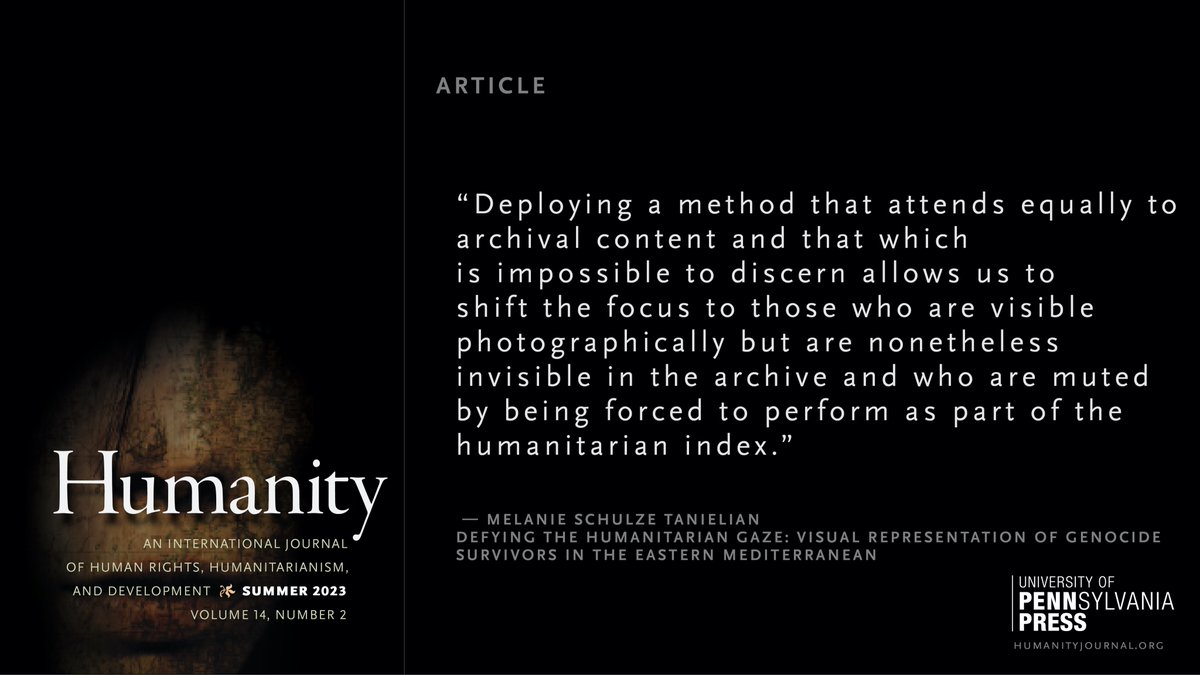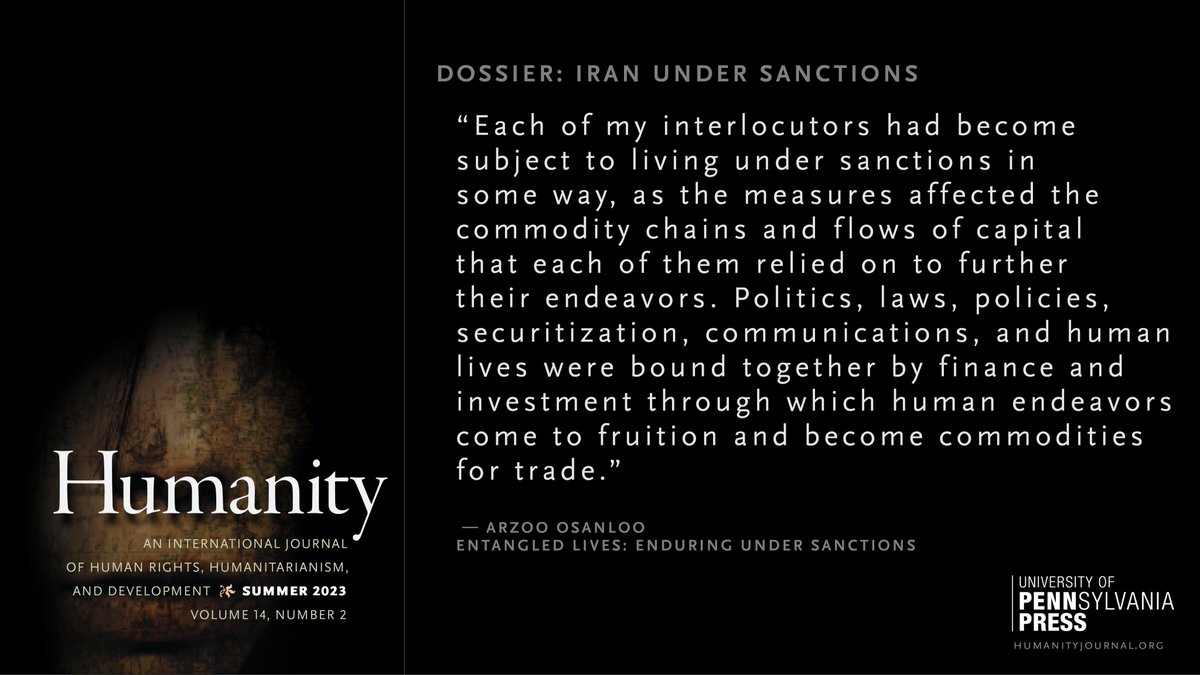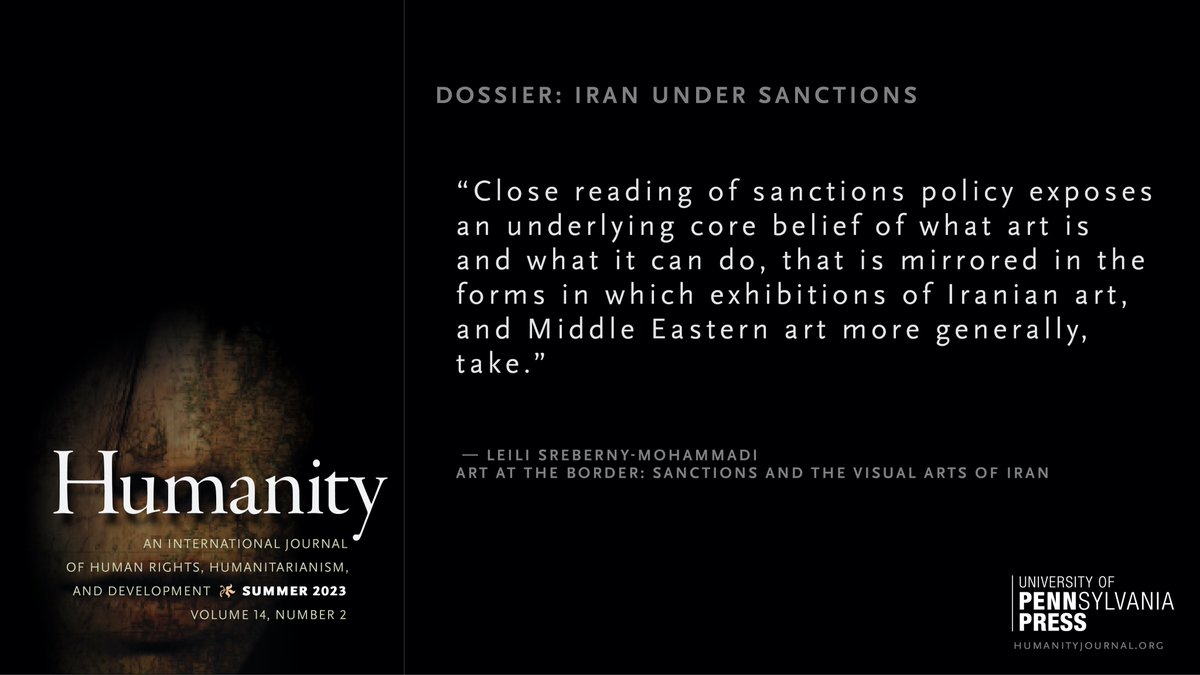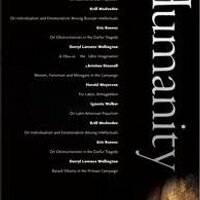
Humanity
@humanityj
An International Journal of Human Rights, Humanitarianism, and Development
ID: 1726851547
http://www.humanityjournal.org 03-09-2013 22:30:53
2,2K Tweet
3,3K Takipçi
120 Takip Edilen


Ntina Tzouvala, Ntina Tzouvala on the political economy of the war on terror muse.jhu.edu/pub/56/article…
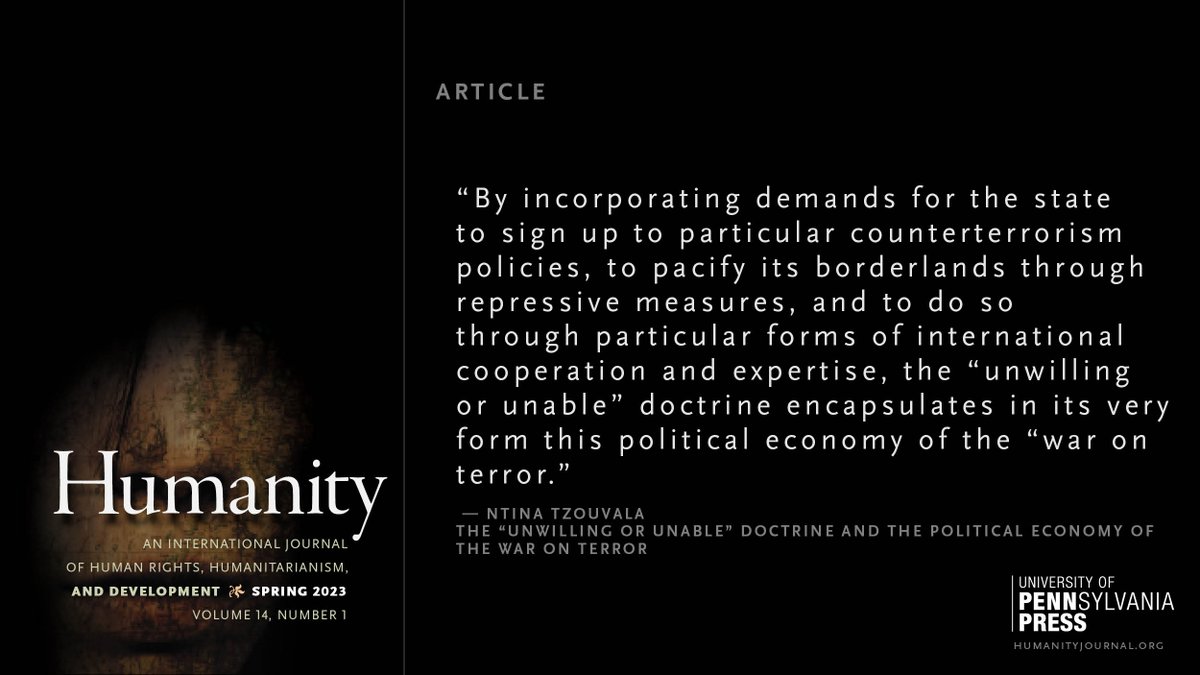

A dossier of essays on Global History and Decolonization, edited by Zaib un Nisa Aziz and Charlotte Kiechel Charlotte Kiechel muse.jhu.edu/issue/49701
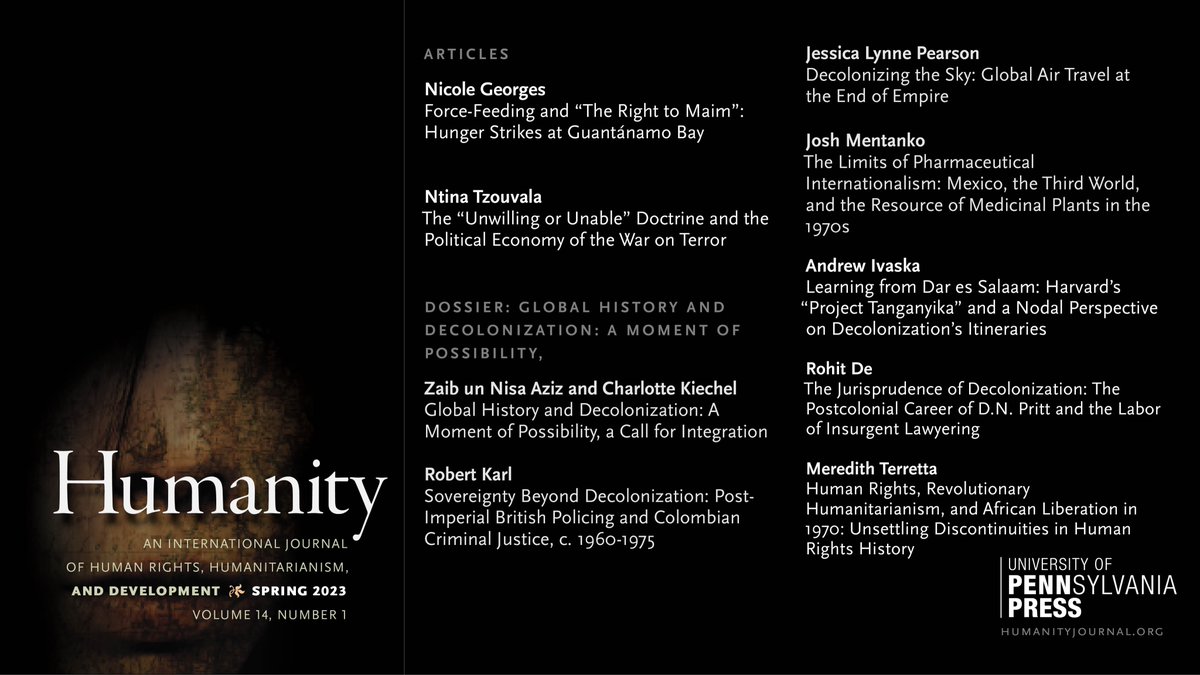

British Post-Imperial Policing in Colombia, from Robert A. Karl @rakarl.bsky.social muse.jhu.edu/pub/56/article…
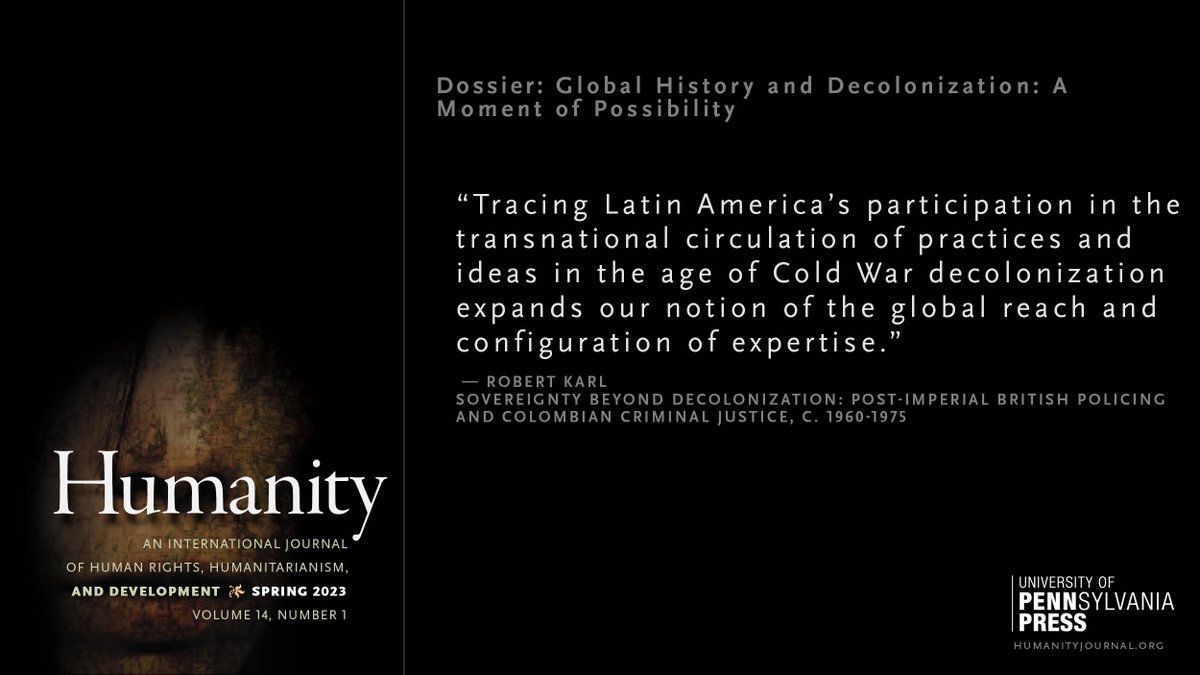

Decolonizing the Sky: Global Air Travel at the End of Empire from Jessica Lynn Pearson Jess Pearson muse.jhu.edu/pub/56/article…
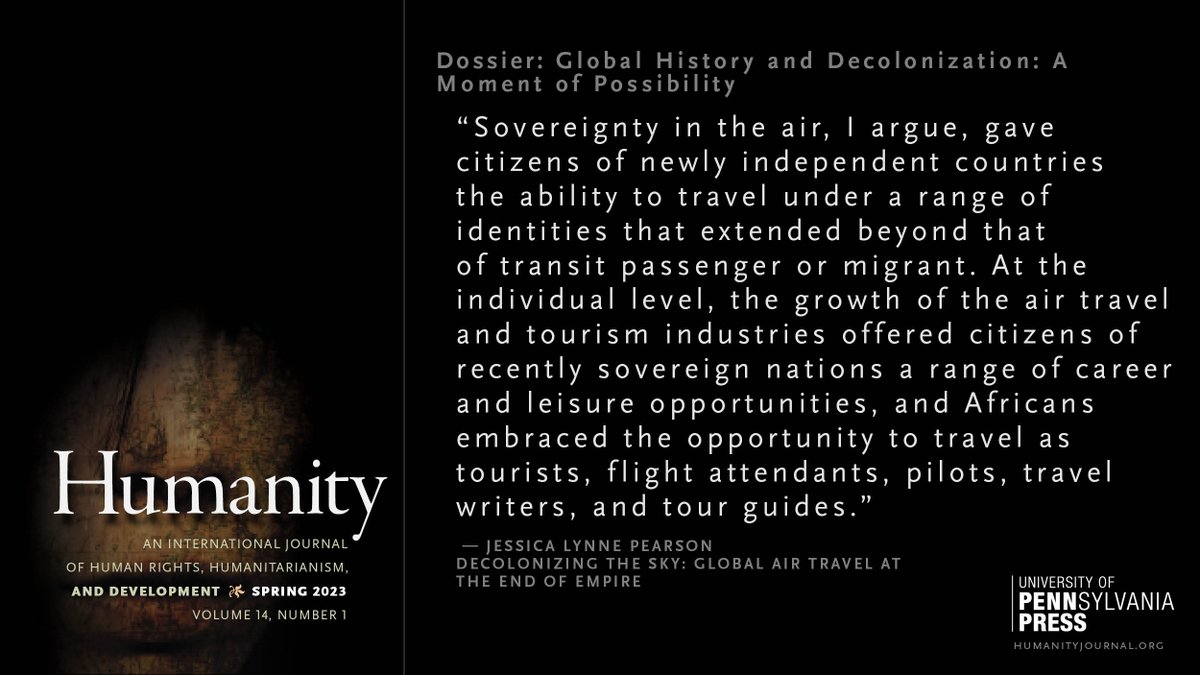

The Limits of Pharmaceutical Internationalism, Mexico, and the Third Word, from Josh Mentanko Josh Mentanko muse.jhu.edu/pub/56/article…
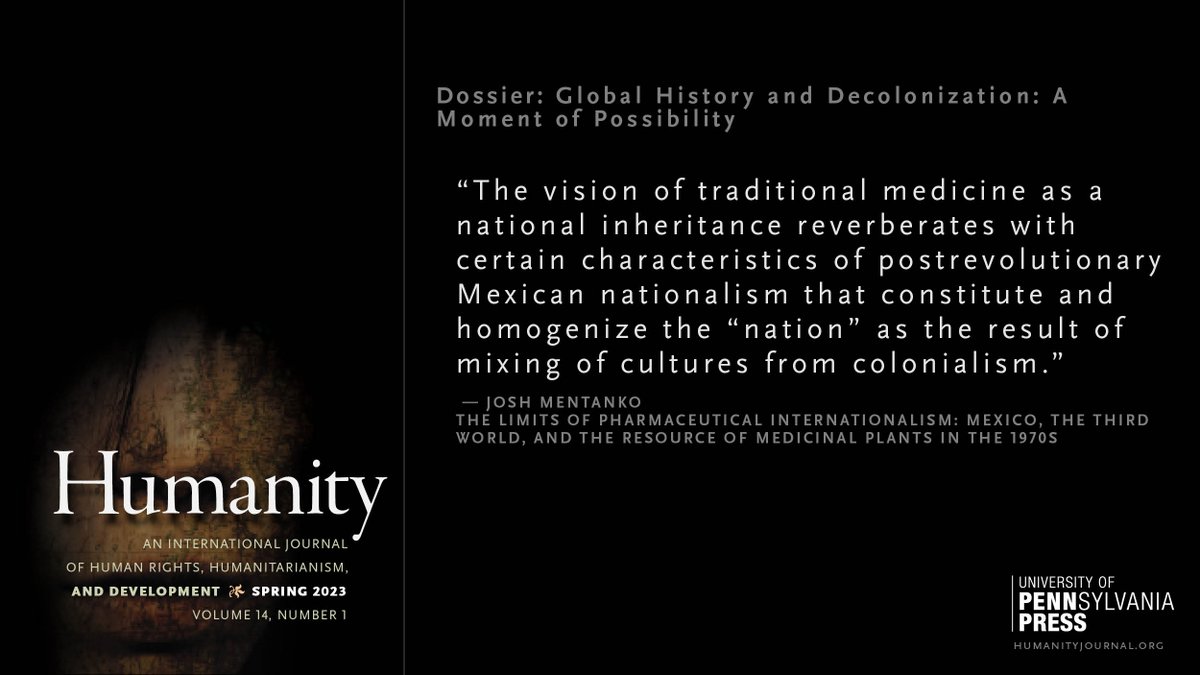



Human Rights, Revolutionary Humanitarianism, and African Liberation in 1970, from Meredith Terretta Meredith Terretta muse.jhu.edu/pub/56/article…
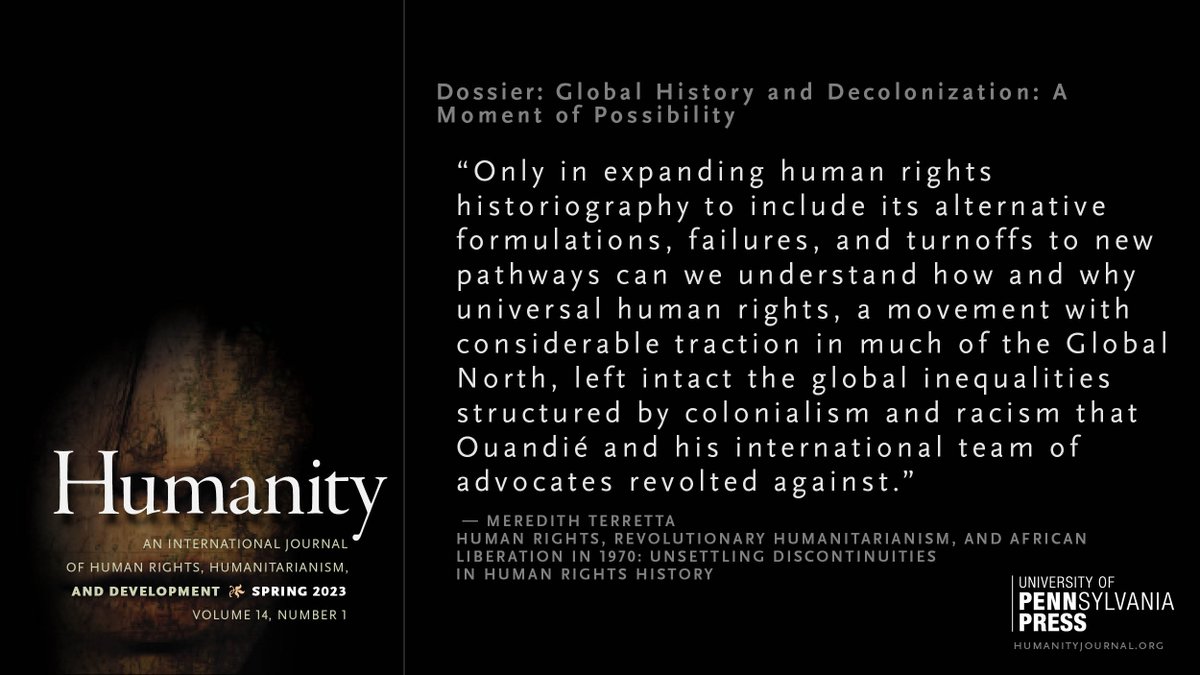

Latest issue is now out! On Iran Sanctions, T.H. Marshall, German reparations and genocide, humanitarian gaze, Farmers' Protests, and more! At muse.jhu.edu/issue/51955 and humanityjournal.org Marina Aksenova, @m_tanielian, Howie Rechavia-Taylor, Bal Sokhi-Bulley, Nazanin Shahrokni

Global Citizenship and the Right of Access to Justice: Adapting T.H. Marshall's Ideas to the Interconnected World Marina Aksenova Marina Aksenova
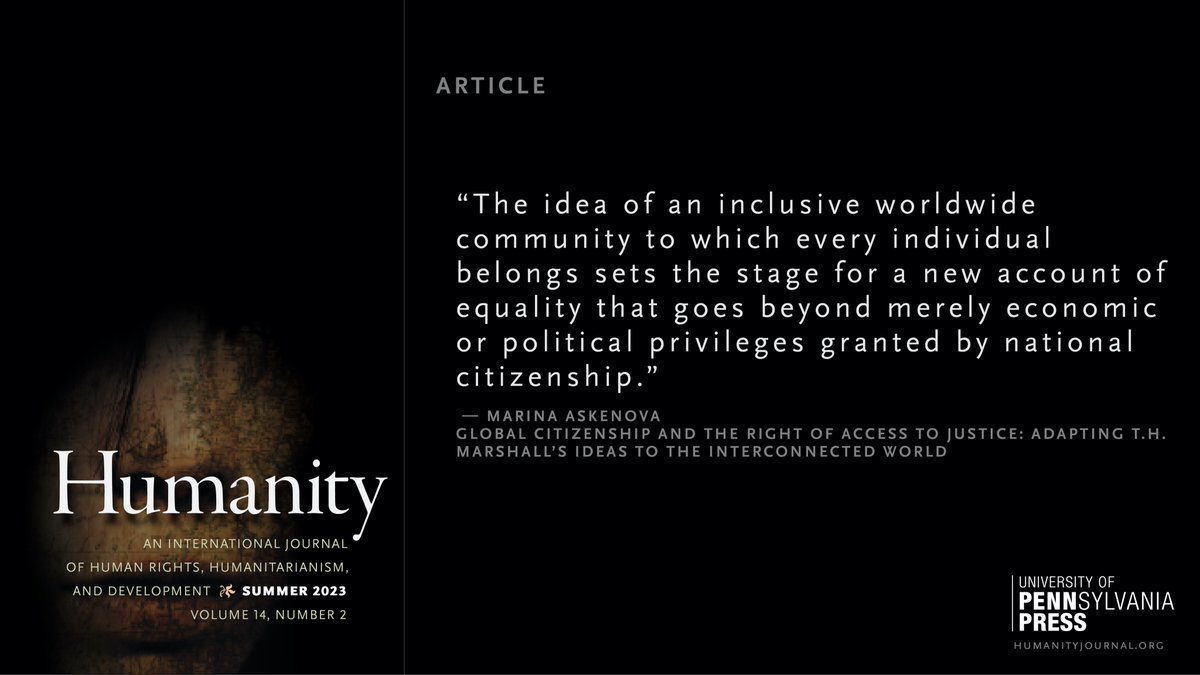


German Colonialism in the Courtroom—Law, Reparation, and the Grammars of the Shoah Howie Rechavia-Taylor Howie Rechavia-Taylor


Seva as Radical Friendship: On Foucault, Spirituality and the Farmers' Protest Bal Sokhi-Bulley Bal Sokhi-Bulley
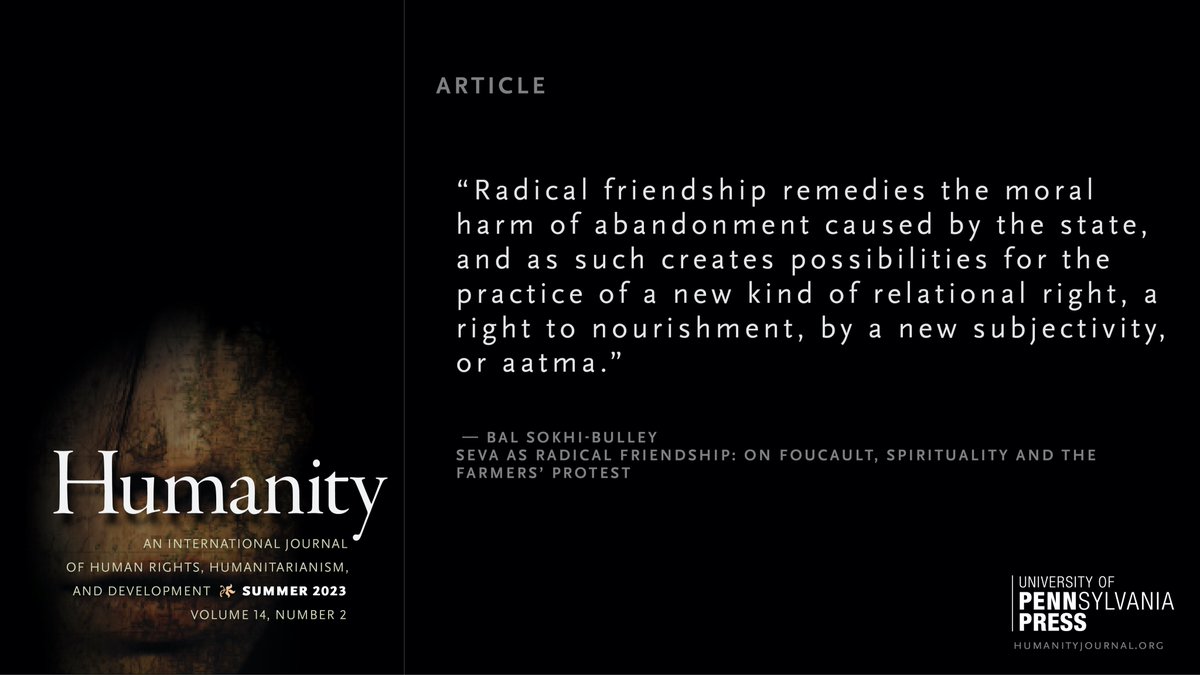

Introduction: Studying the Impacts of Economic Sanctions in Iran: Everyday Life, Power, and Foreign Policy Narges Bajoghli nargesbajoghli DOI: doi.org/10.1353/hum.20…
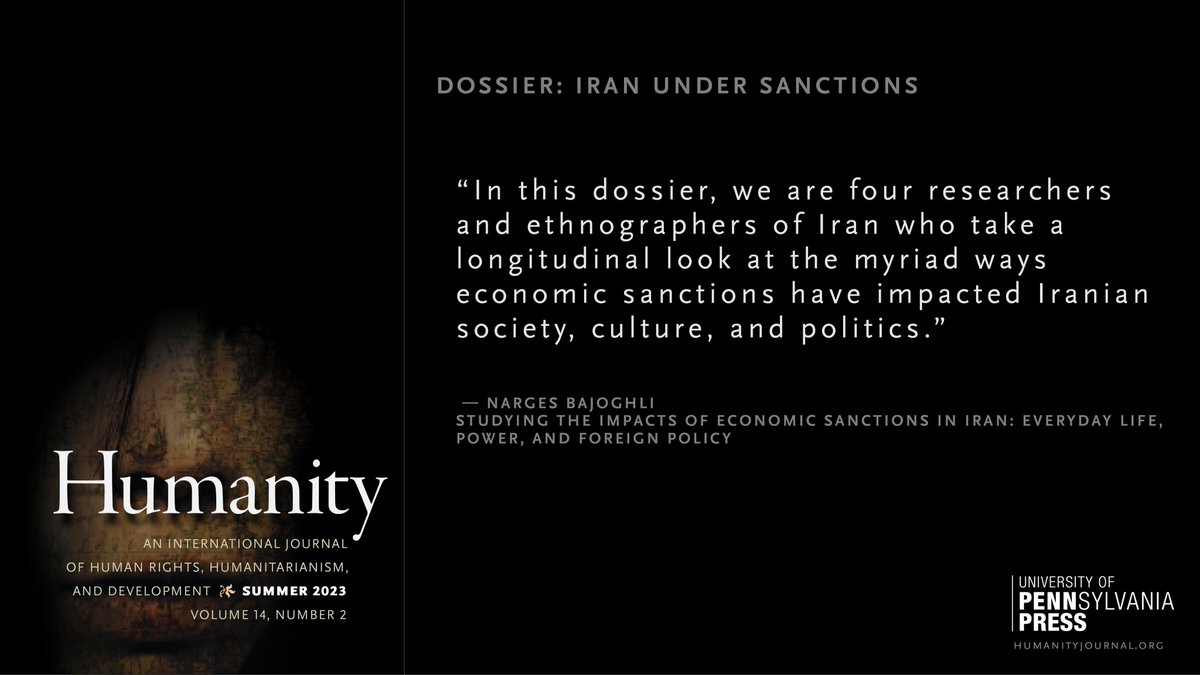



Depleted Households: "Domesticating" Economic Sanctions Nazanin Shahrokni Nazanin Shahrokni
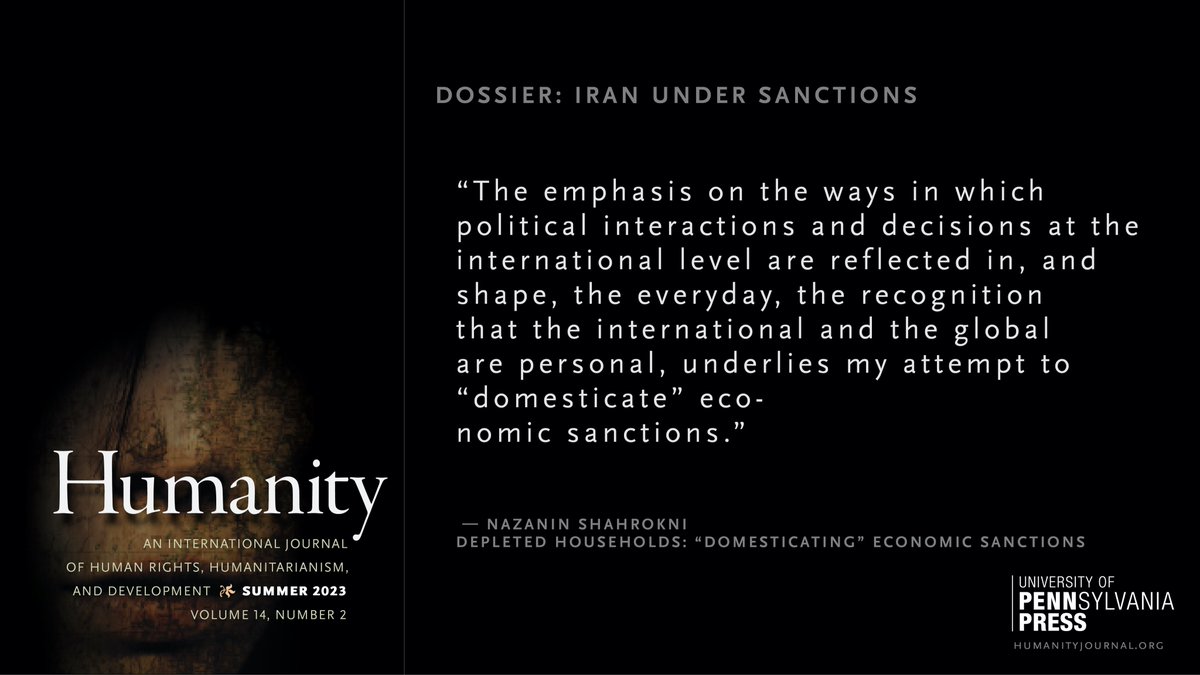

Iran in Latin America: Building Alliances for Busting Economic Sanctions Narges Bajoghli nargesbajoghli on the meanings of “sanctions busting” and building “resistance economies” for humanitarian and development issues. doi.org/10.1353/hum.20…


